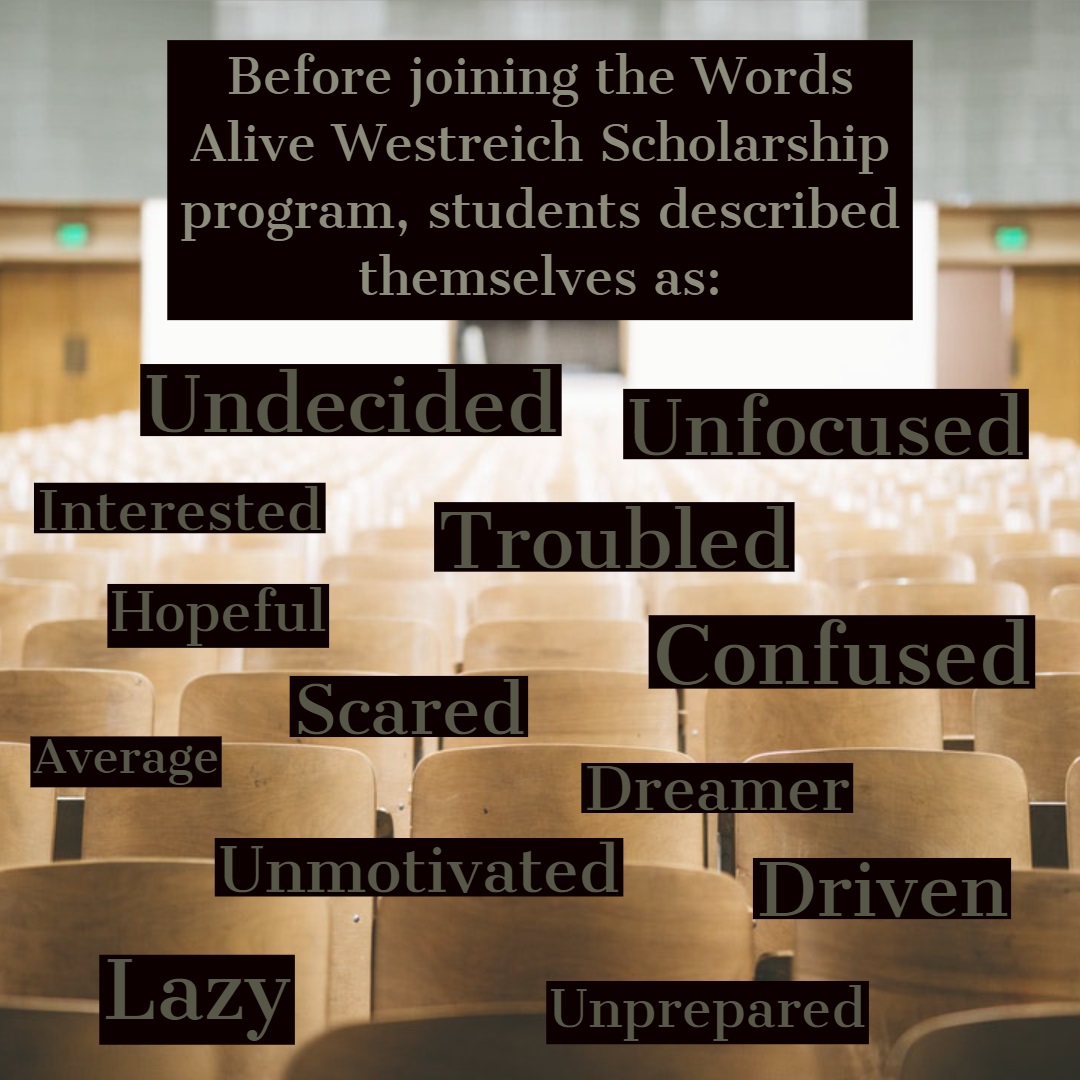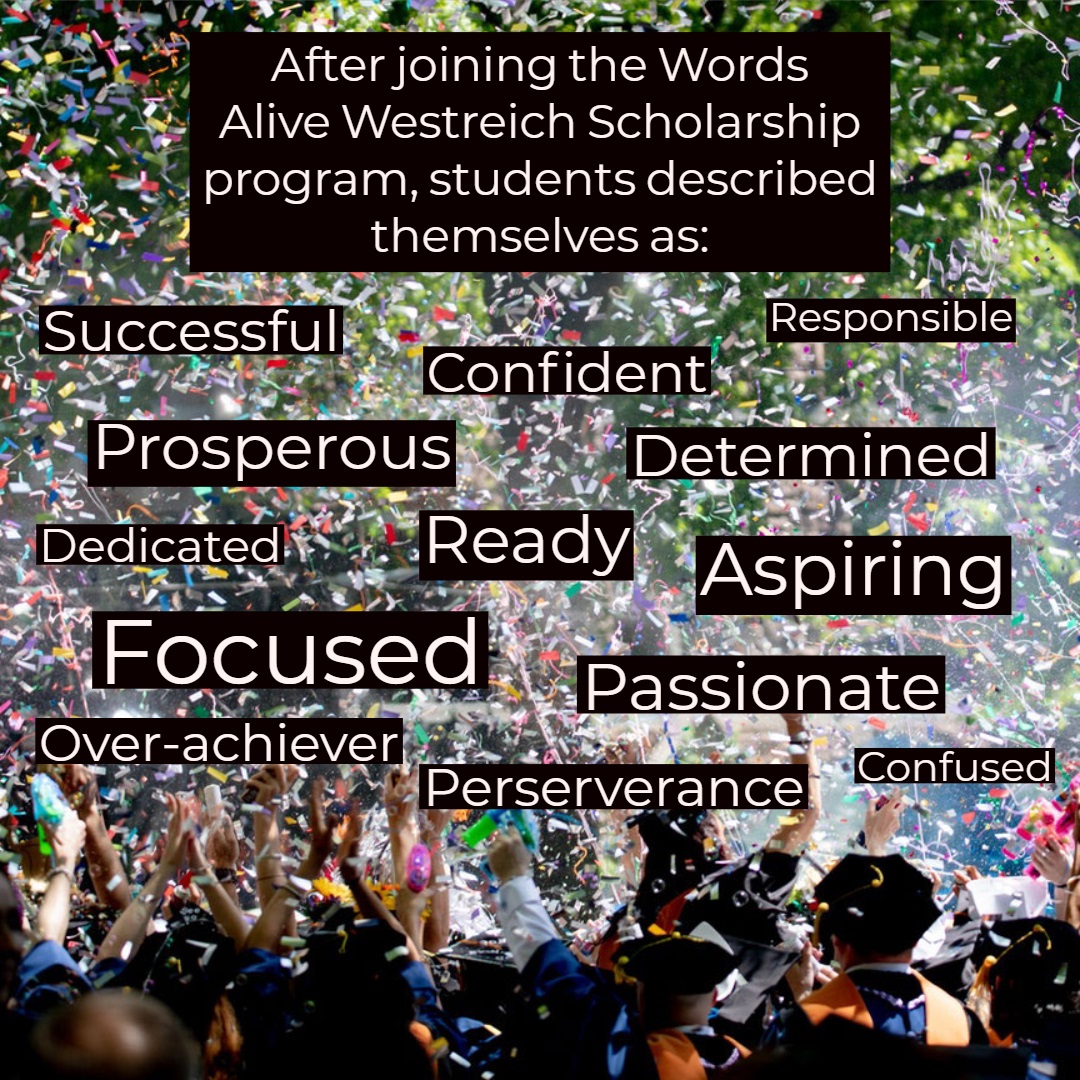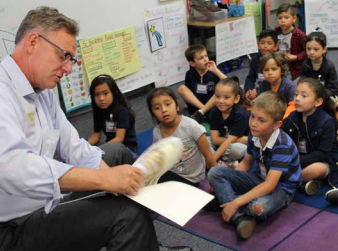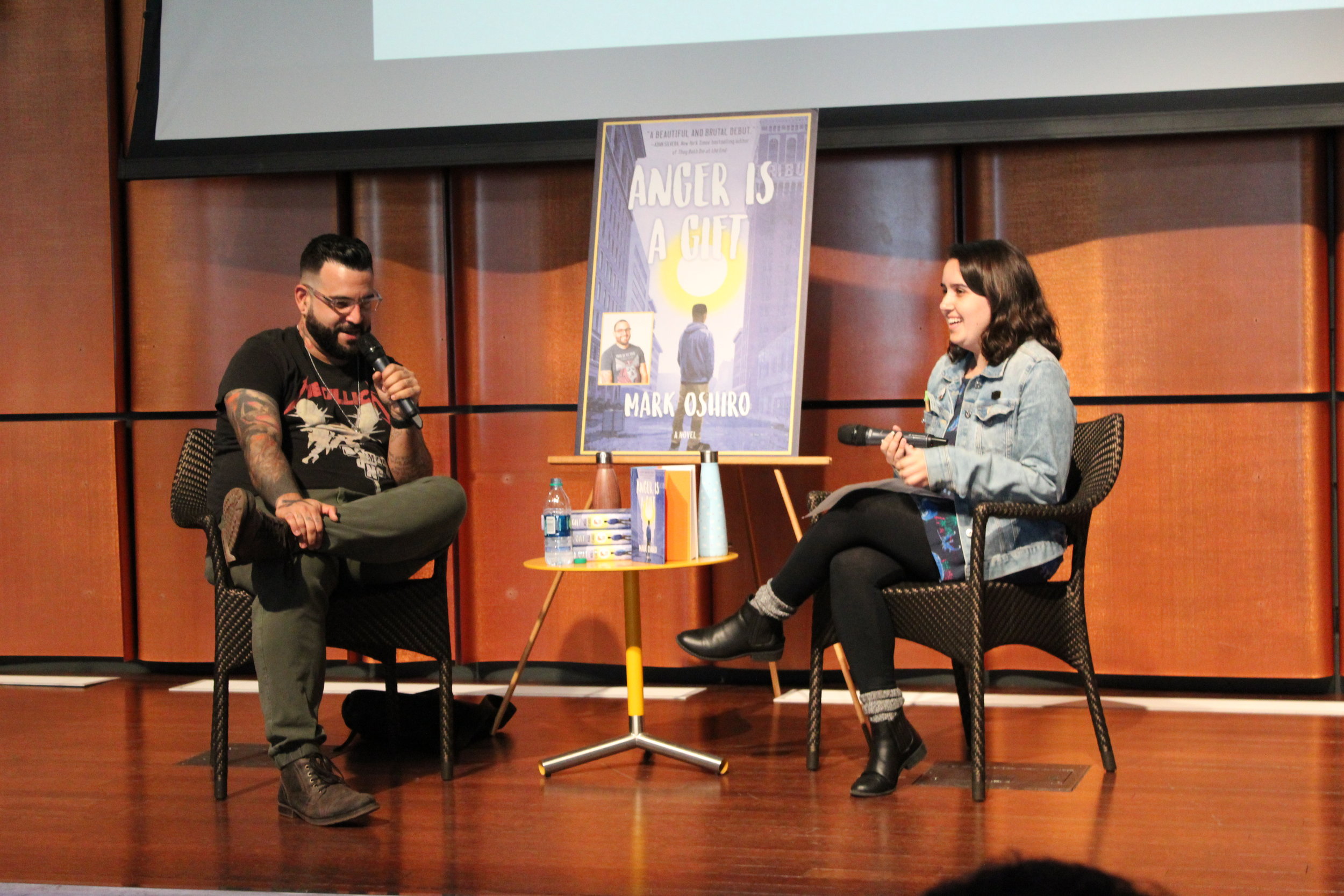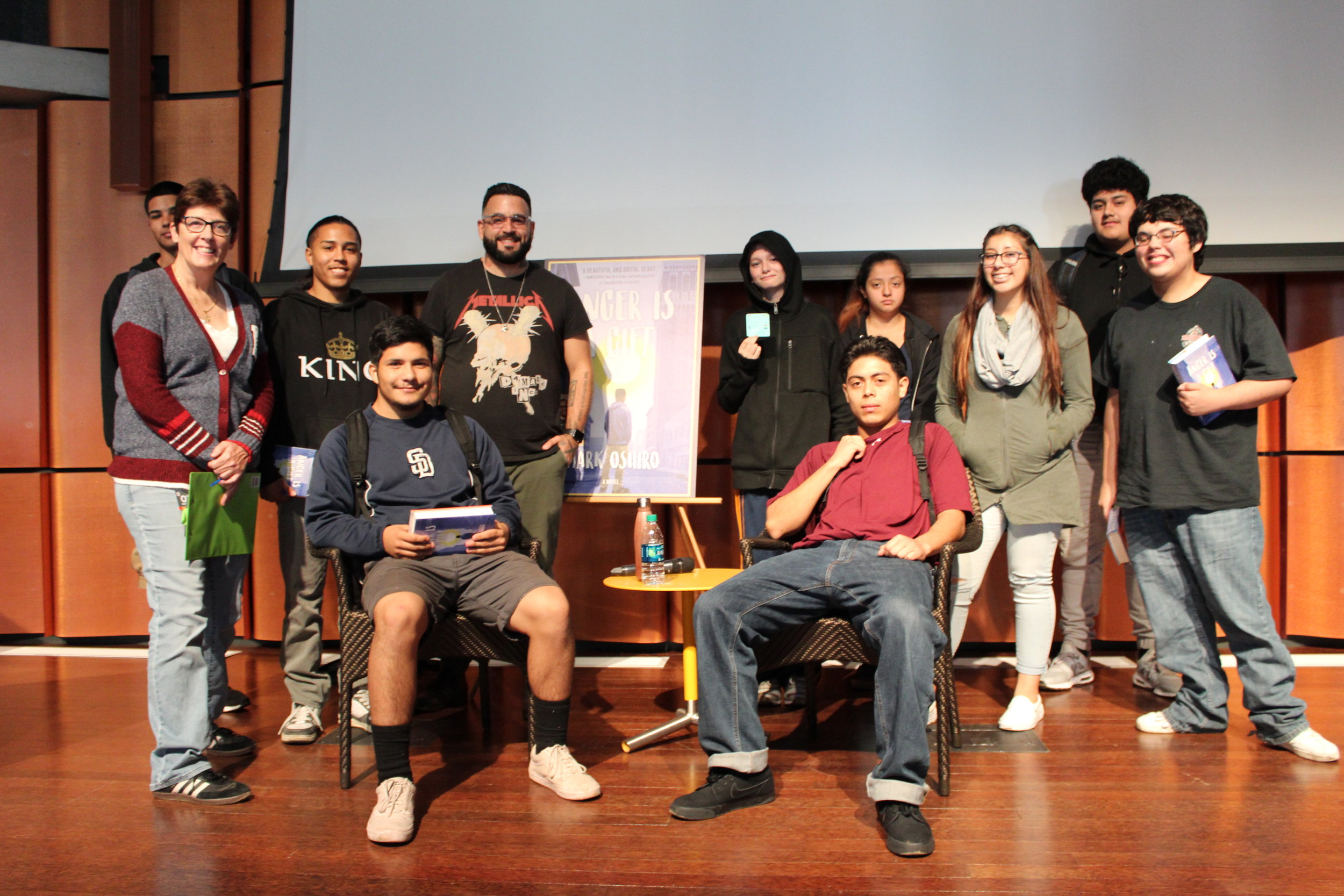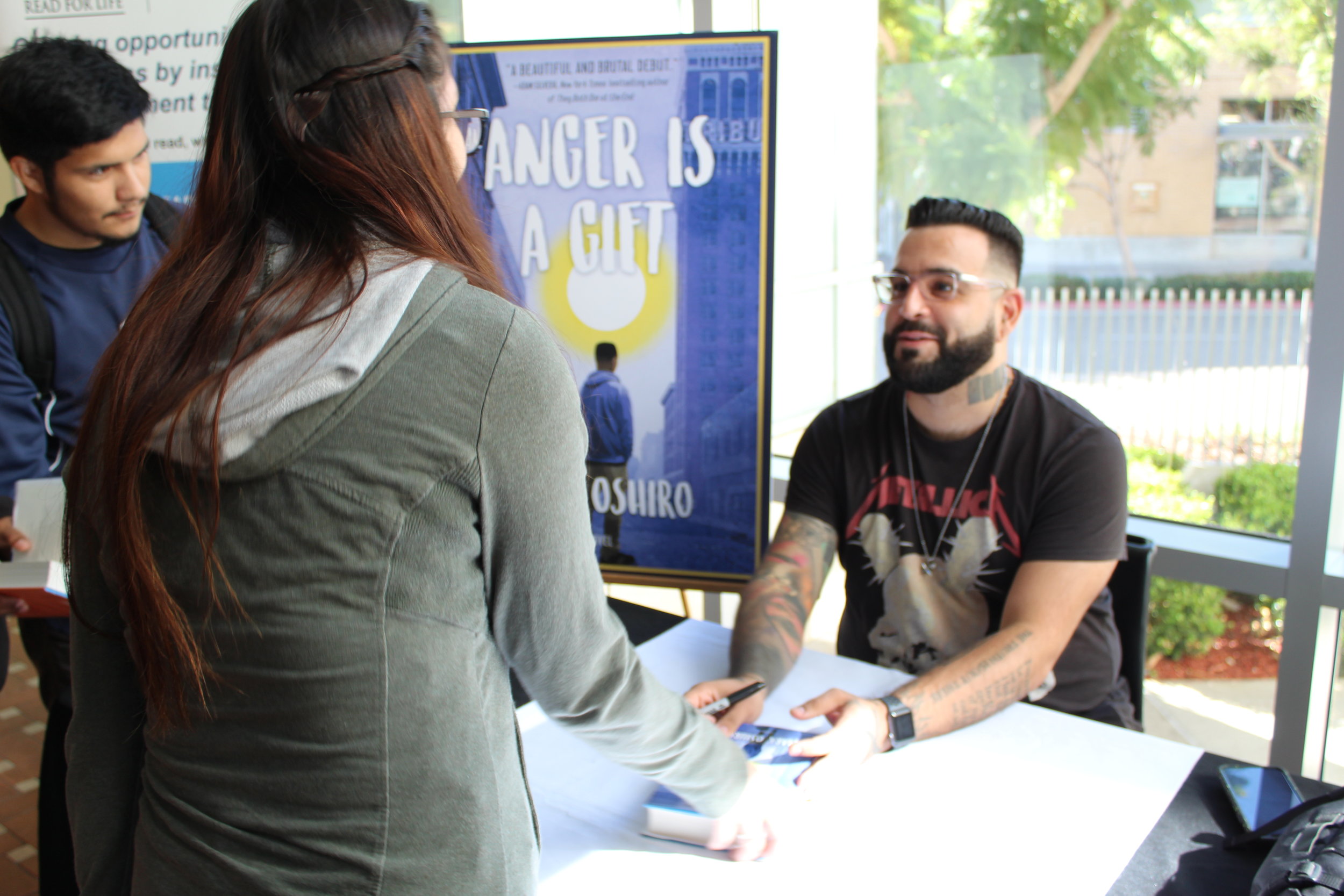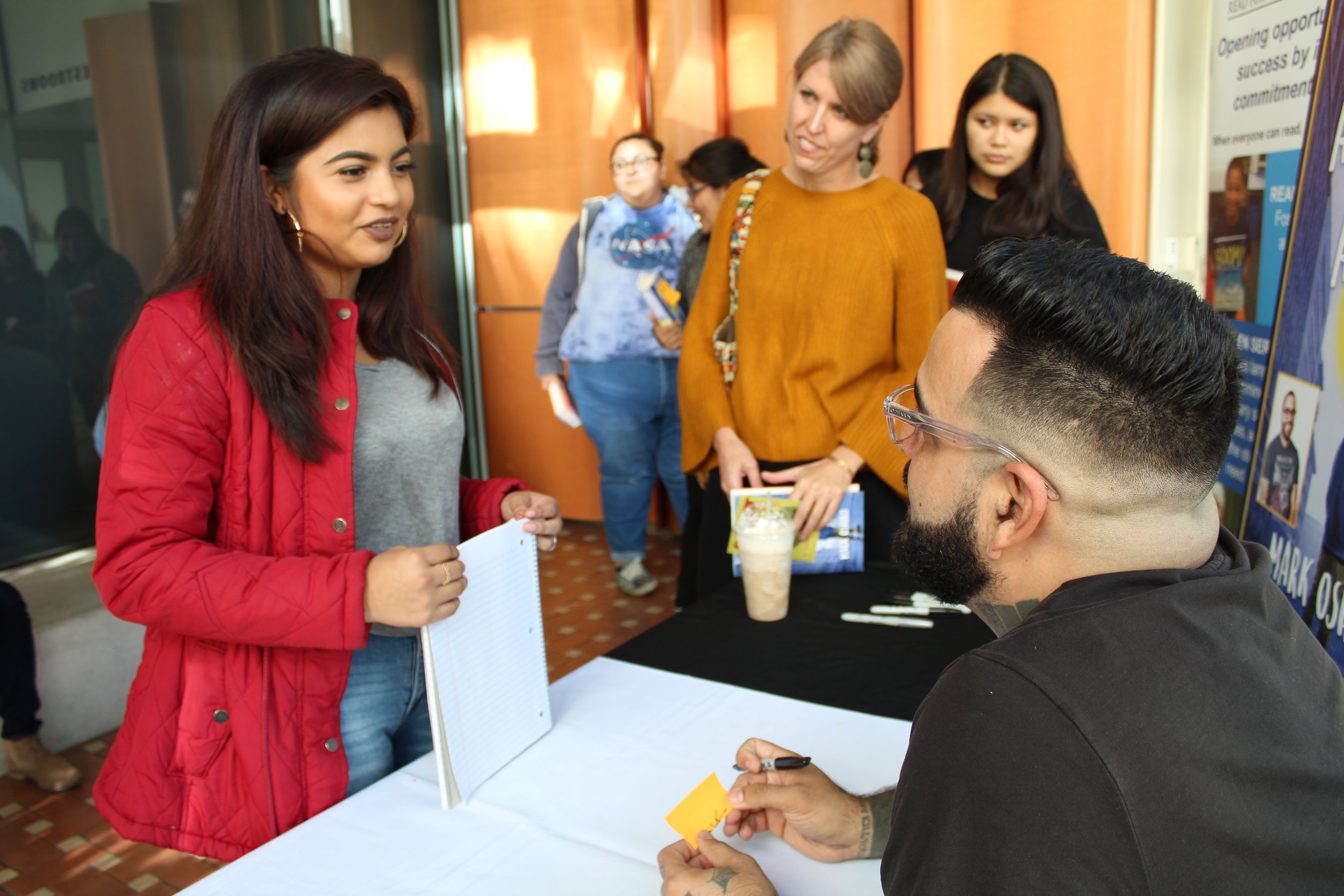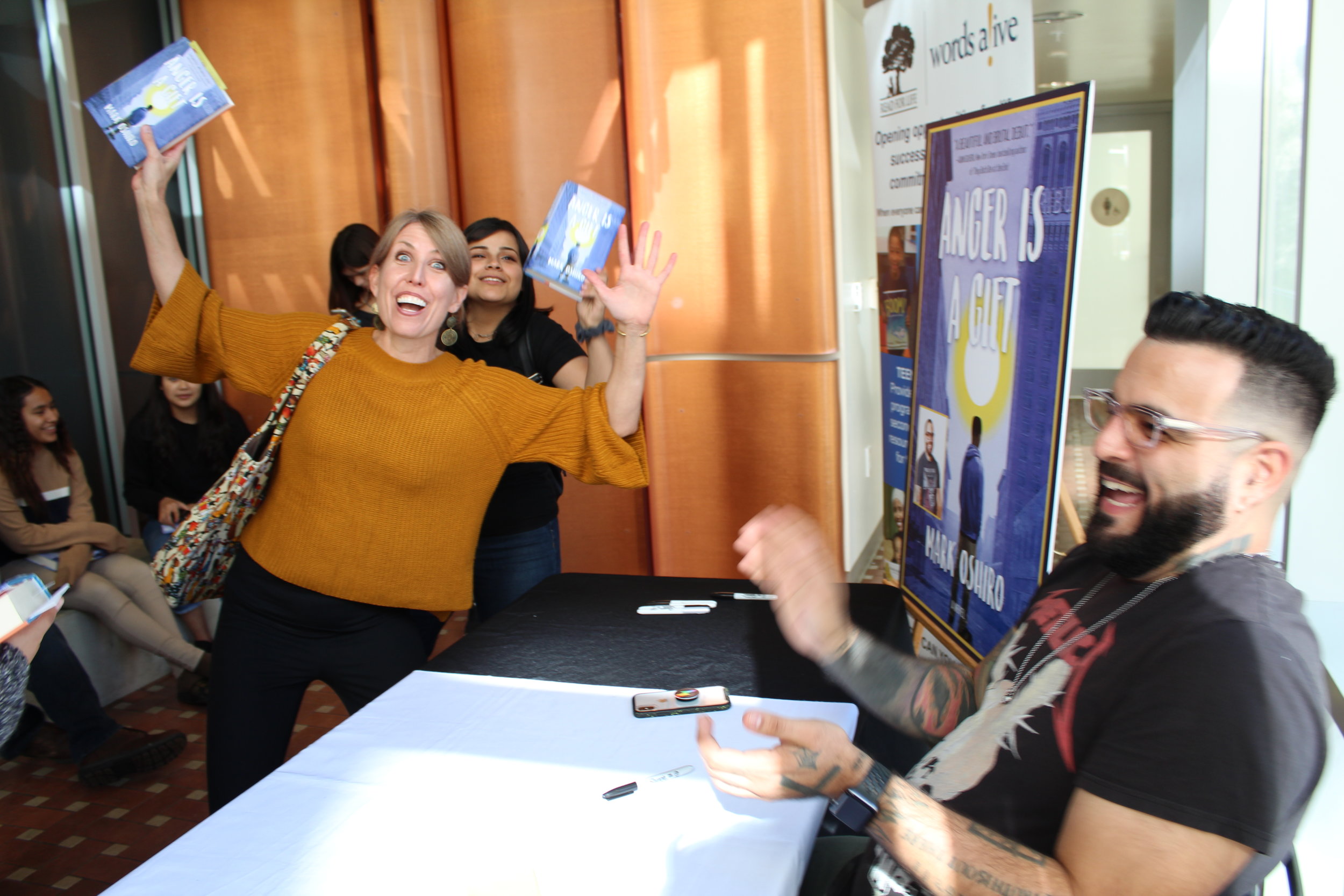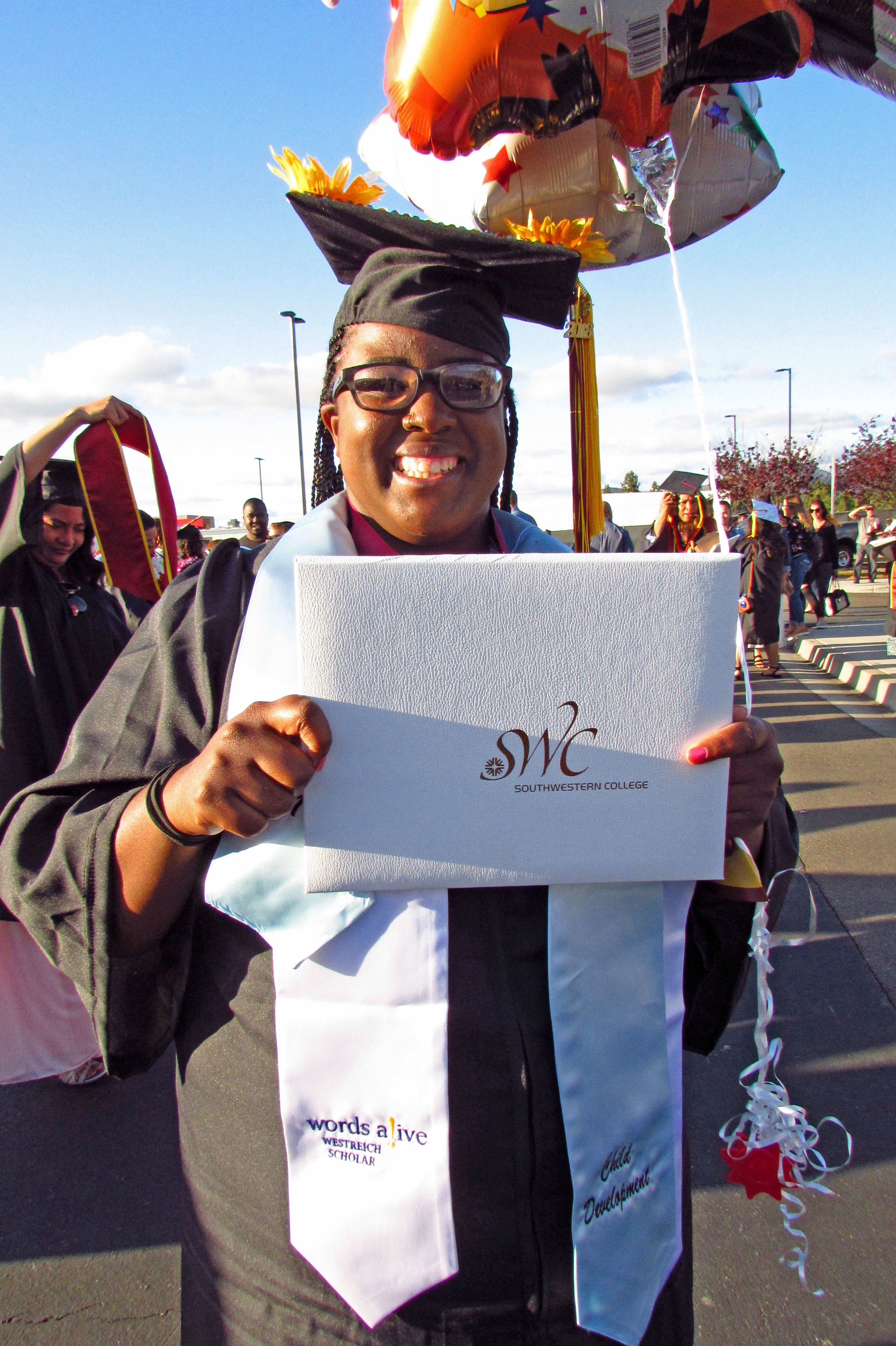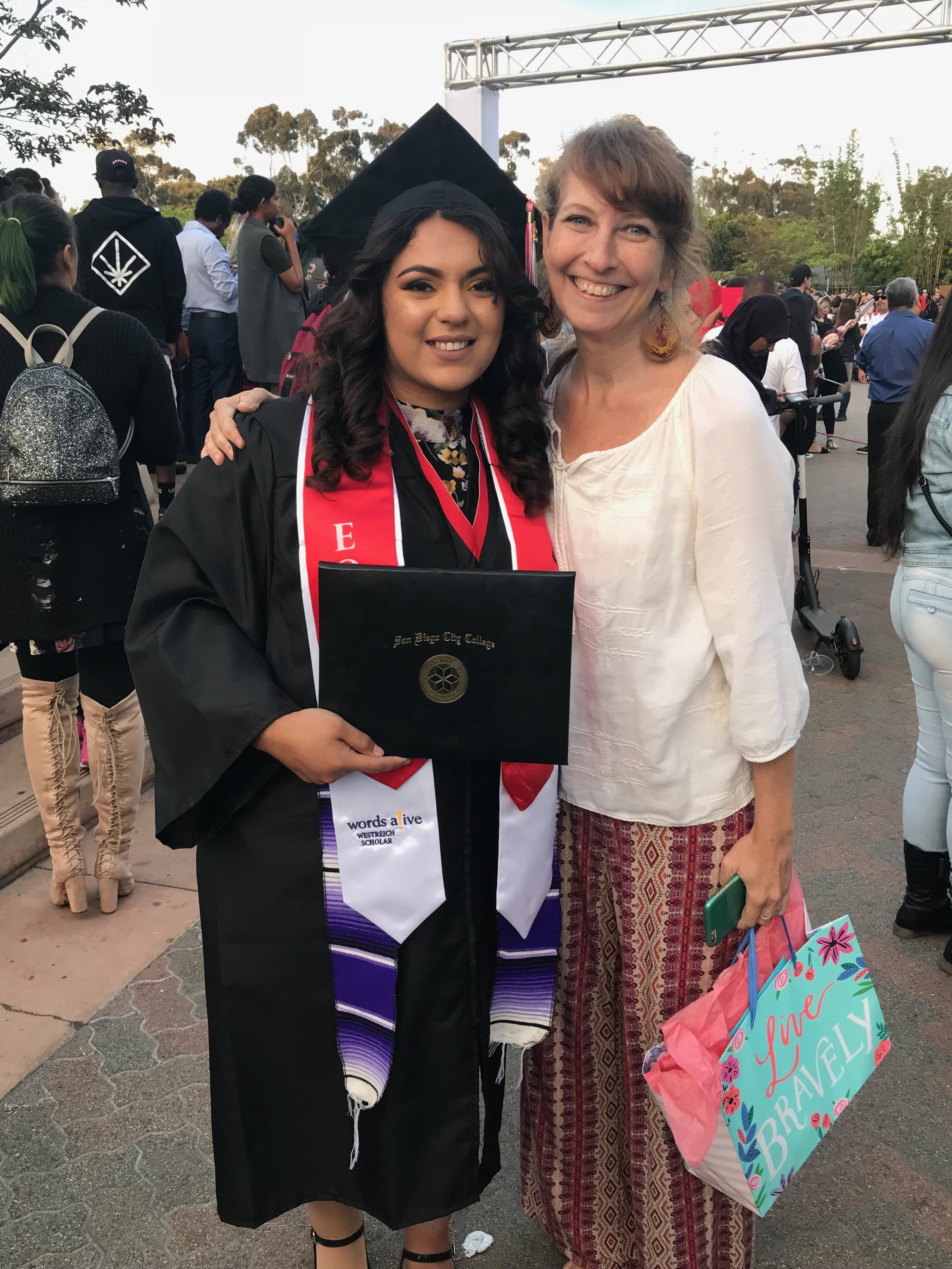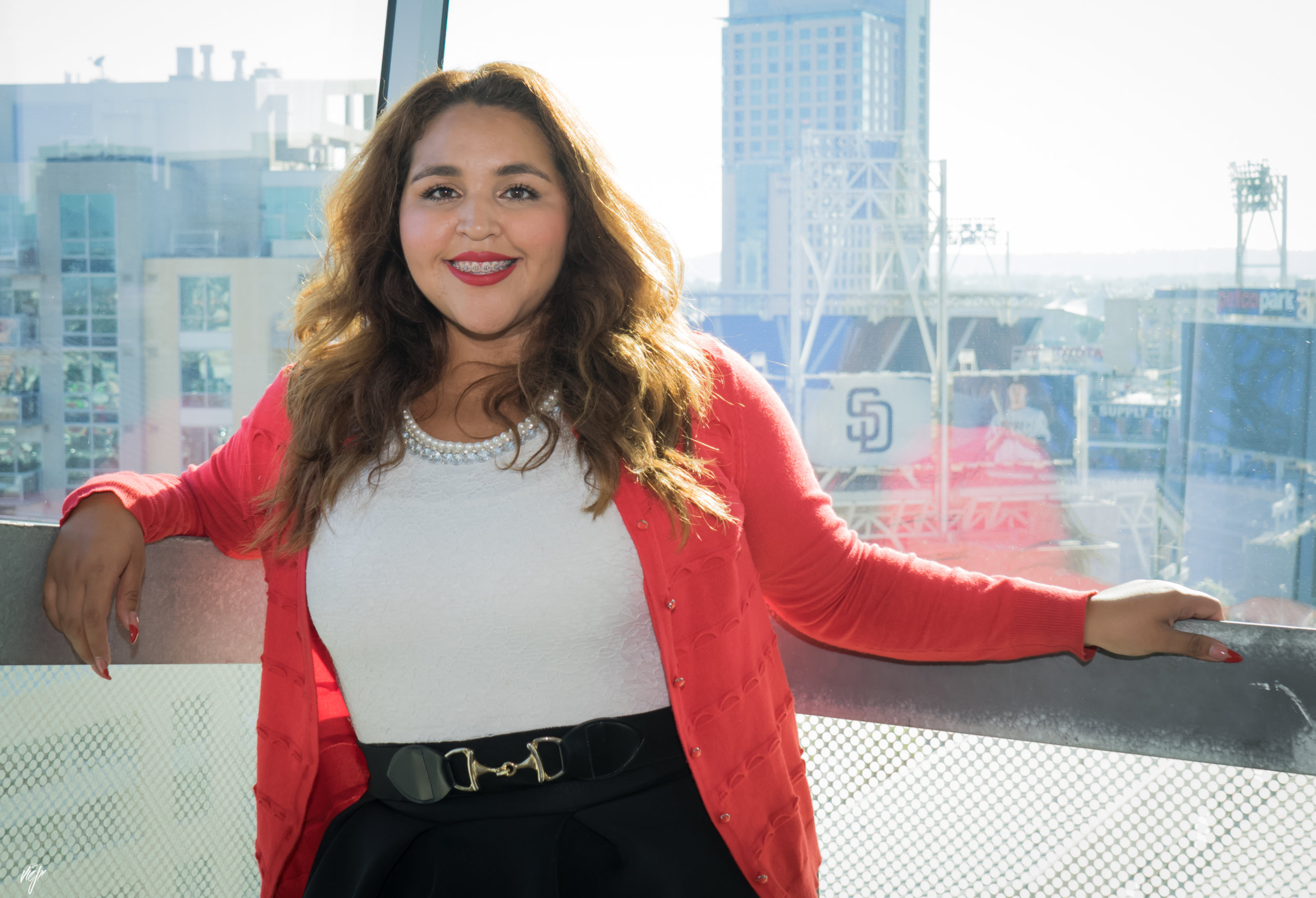An image of our scholarship students and mentors at a volunteer day at Kitchens for Good.
To continually provide meaningful and evaluation-driven programming, Words Alive commenced on a seven-month Dialogues in Action (DIA) project to analyze the impact of our Words Alive Westreich Scholarship (WAWS) program using a blended qualitative and quantitative evaluation model. Through this process, we had an opportunity to view our program through the lens of the scholarship recipients, past and present, and their mentors to determine opportunities to enhance our program delivery.
Throughout this process, we identified eight findings and then brainstormed ways we could update and improve the program based on these findings. Here is the sixth finding!
Better Together: Becoming Aware of Peer Relationships
The WAWS program also provides opportunities for scholars to participate in group activities in order to make deeper connections within their cohort and experience new things in the community. These activities, beyond the mandated workshop participation, include volunteerism, meal-sharing, outings to sporting events or performing arts shows and an extension of the Adolescent Book Group designed specifically for them.
As scholars begin to experience new environments, they find that their personal backgrounds can be dramatically different from many of their peers, making a sense of “belonging” and connection with others difficult. However, by spending time with one another during designed activities in the program, scholars got to know each other better, and in time, relate. Many of the students participating in the program recognized an elevated awareness of the peer relationships within the group – other young people who have shared experiences and whose camaraderie can provide a sense of safety and mutual well-being.
“I didn’t realize before, how many kids were in situations similar to me,” said one current participant. Finding common ground with her program peers helped her reach out at school: “I found a society oriented towards youth in foster care, homeless, orphaned or in other difficult situations or for kids whose parents weren’t emotionally available. I became involved in the society and got another scholarship through them,” she continued. - Scholar, age 24
In addition to developing like-minded peer relationships within the WAWS group, and then feeling confident to seek out those relationships and support systems beyond the group, the students also expressed an increased level of “community engagement” – a new level of ease with networking, finding resources, giving back and being a resource for each other.
“I like to talk with my classmates and have little conversations. Through small talk I found out that one of my classmate’s boyfriend was mistreating her. I encouraged her by sharing my past and my experience with domestic violence. I suggested she go to a therapist and even suggested I could go with her if she [needed the] support.” – Scholar, age 22
Significance
No one wants to feel alone, that their experiences, especially traumatic, are isolated, or that no one else understands their path. That the WAWS program is designed to meet the needs of students and young people sharing very particular and specific backgrounds is unique, and one that the students clearly have been able to capitalize. Additionally, as the young people who participate in the program progress, they have found it not only helpful to their peers, but also beneficial to themselves, to be able to recognize the value of these peer relationships and both use them to seek assistance and provide leadership when appropriate.
Learn more about the Words Alive Westreich Scholarship here!




